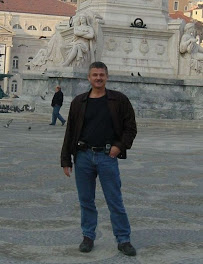Canada's MS patients are owed an explanationBy Ujjal Dosanjh And Kirsty Duncan*
The government of Canada is failing multiple sclerosis patients on numerous fronts. In August, the Canadian Institutes of Health Research, in collaboration with the Multiple Sclerosis Society of Canada (MSSC), convened a "meeting of top researchers ... with a special emphasis on neurovascular issues including the recently proposed condition called CCSVI."
Sadly, it was an expert group with no experts in the imaging/treatment of chronic, cerebrospinal venous insufficiency (CCSVI). Leaders, such as Dr. Sandy McDonald -- the only Canadian to be trained by liberation treatment pioneer Dr. Paolo Zamboni, and to have performed the procedure here in Canada -- were not consulted. Moreover, there was no inclusion of international experts in CCSVI/liberation treatment, no data presented at international scientific conferences, and no site visits to labs and operating theatres, but rather just blind acceptance of a handful of studies, including two which had been accepted in an astounding six weeks. After the secret meeting, we were told, incredibly, that CCSVI/liberation experts were not included for fear of biasing the discussion; surely, disregarding experts is a dangerous precedent. Yet researchers, who had vehemently spoken out against the liberation procedure, were included in the group.
A new "scientific expert working group" has been appointed, but sadly suffers the same flaws as the initial group -- namely, no experts, no experience, and many undeclared conflicts of interests. The new group is to analyse interim and final results from seven Canadian and U.S. MS Societies -- funded studies, for which we already have answers.
Why is the government waiting for results when more than 3,500 procedures have been performed in more than 50 countries; when Bulgaria, Canada, Italy, Kuwait, Poland, and the United States report that 87 to 90 per cent of MS patients show one or more venous abnormalities in MRIs and ultrasounds, and 97 per cent when angiography is done?
Canadian MS patients deserve evidence-based medical practices. But how can this right be realized when their government refuses to collect any evidence? We have been calling for the collection of evidence since the spring, through clinical trials, and a registry.
It is more than unfortunate that Canadian patients, who have been travelling overseas since January 2010, have not had their results tracked, for example, at one month, three months, and six months after treatment. One Canadian neurologist, who had the liberation procedure, said to me, "if we had collected the evidence in a registry for the last many months, would we still be calling these anecdotal stories?"
Finally, like many MS patients, we are frustrated with the government, and want an investigation into how this file was handled so badly: how special interests co-opted science; how an organization that was supposed to steadfastly advocate for MS patients flip-flopped on its position; how process was used not to do science; how conflicts of interests went undeclared; how a pioneering surgeon had to risk his reputation; how MS patients were forced to fight the system; and how the minister repeatedly failed to advocate on behalf of suffering Canadians, particularly with regard to followup care -- especially when we began raising the issue in July with officials?
And ultimately, who was responsible for repeatedly failing to take leadership, and who must be held accountable for the abject abdication of responsibility?
*Ujjal Dosanjh is the health critic for the Official Opposition, member of Parliament for Vancouver South, and former premier of British Columbia. Dr. Kirsty Duncan is the member of Parliament for Etobicoke North.
Tuesday, January 4, 2011
Canada's MS patients are owed an explanation - Yes!
Thanks to Shelley for alerting me to this strongly-worded Op-Ed piece (written by two liberal MPs) that is in today`s Ottawa Citizen:
Subscribe to:
Post Comments (Atom)




I have MS and CCSVI. I was treated in the US with angioplasty and felt better, but re-stenosed. I was treated in Poland with angioplasty and stent and felt better, but re-stenosed. Next month I return to the US for angioplasty and stent treatment. This is all very expensive, and should be available in Ontario. It is not, because for decades Big Pharma has controlled the players in the health care delivery sectors, and the MS Society, and will lose billions of dollars (Betaseron is $1,700/month) if CCSVI treatment is available to MS sufferers. Dosanjh asks "...who must be held accountable for the abject abdication of responsibility?" The players should be brought to the civil courts for damages (loss of income, pain and suffering, wrongful death) and the criminal courts (criminal negligence).
ReplyDeleteThomas Richards
Toronto Criminal Lawyer
Unfortunately, when profits get in the way of humanitarian values, the "system" benefits at the expense of people. All those blocking the research and performance of this surgery must look themselves in the mirror every morning.
ReplyDeleteSigned from a sister of a person who must travel abroad for services he should be getting in Canada.
How can we get the attention and cooperation of our politicians? The fact that many MS sufferers are fleeing Canada for offshore treatment is a disgrace to our capable medical system. And to think that those who need follow-up treatment from off-shore correction are denied this in Canada is beyond belief. Where are our tax dollars going? To the drup companies? We must demand that our representatives in government speak up against this injustice.
ReplyDeleteand these sort of things can happend only to a taxpayers like you or me... picking up a slack always for a decades without demanding the answers. Where is our politicians accountability? I paid high taxes for a price of a free health care and today I have not a penny to spare for my son's liberation treatment!
ReplyDeleteIs denying the treatment and reasonable medical after care not a violation of human rights?
ReplyDelete